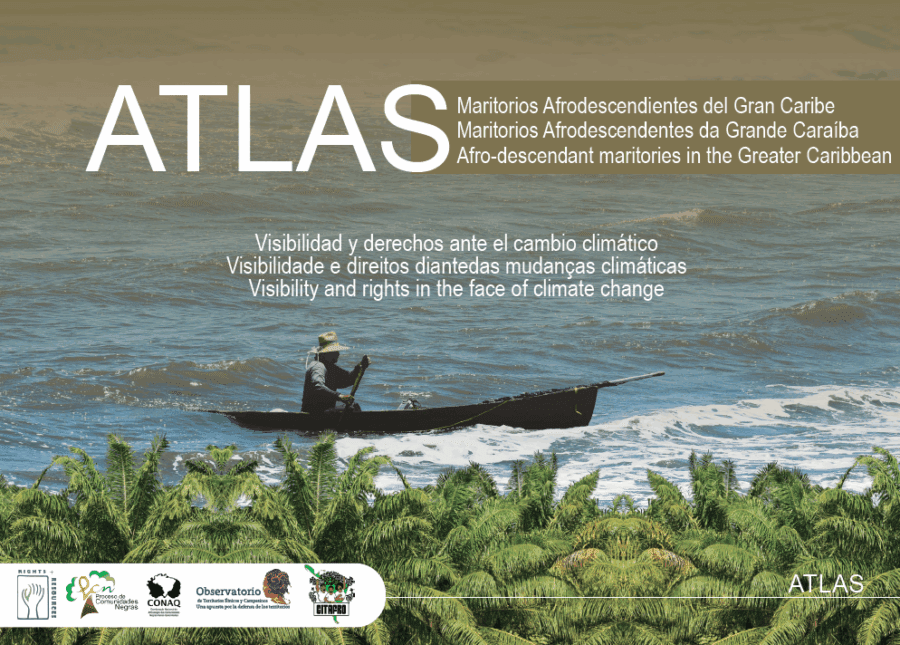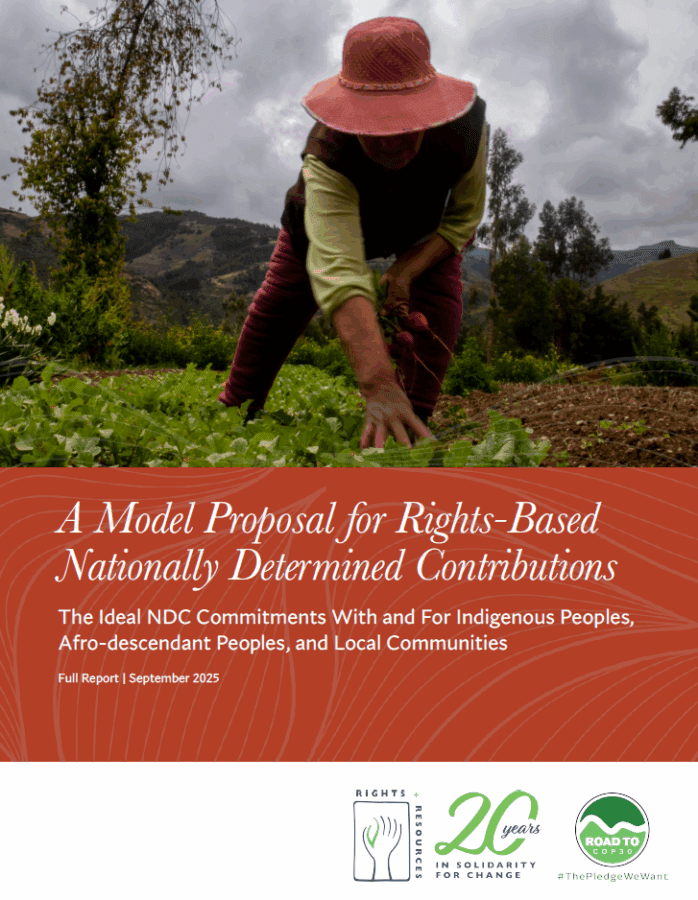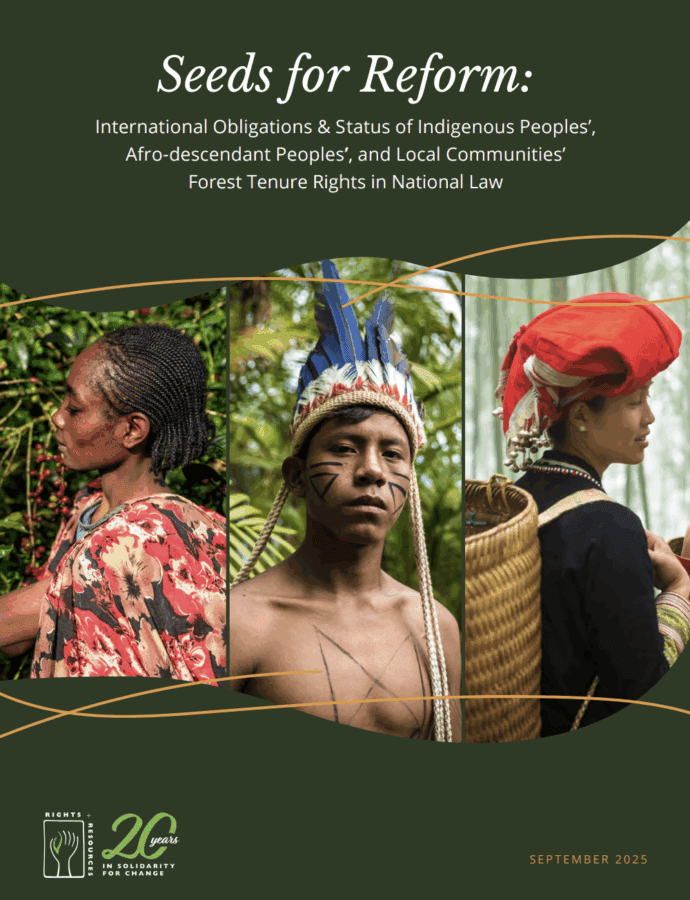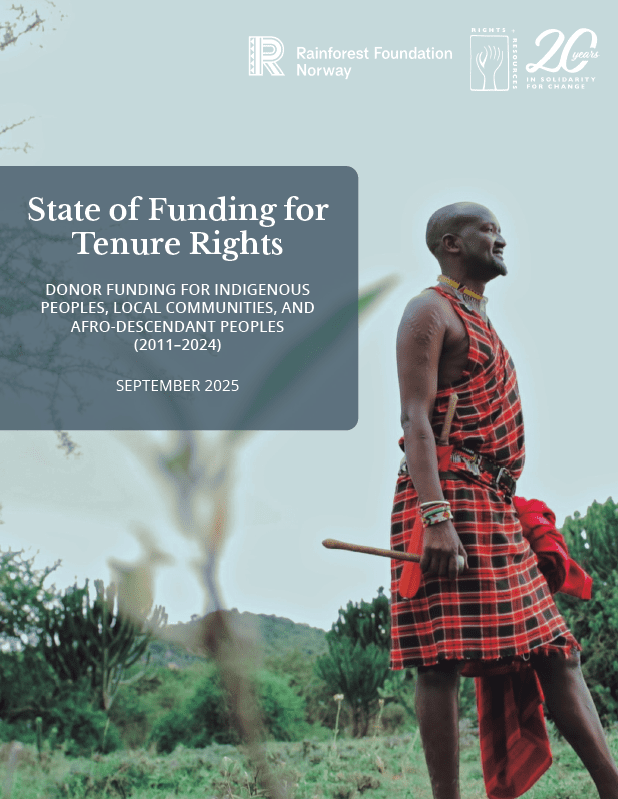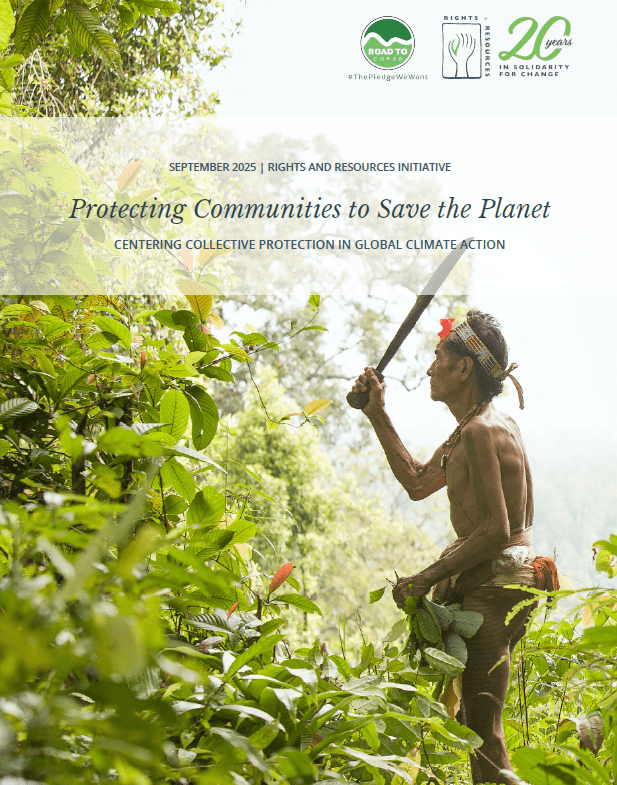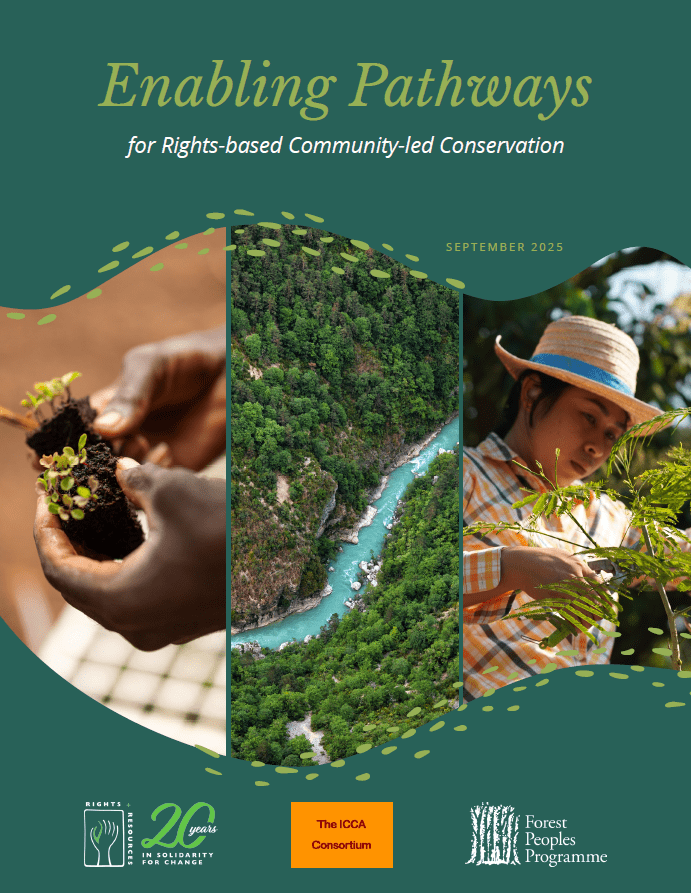Continuing the mapping of lands and spaces used by people of African descent carried out in 2024, this edition incorporates a maritime and coastal dimension that allows for a more complete understanding of the complex network of relationships between Afro-descendant Peoples and the marine environment.
This document presents the Rights-Based NDC Model, a framework designed to integrate the rights and contributions of Indigenous Peoples, Afro-descendant Peoples, and local communities into the design and implementation of Nationally Determined Contributions (NDCs) under the Paris Agreement. NDCs are the central policy instruments through which countries communicate their climate commitments—defining national goals, mitigation and adaptation strategies, and financial needs.
This report offers RRI's updated assessment of the status and strength of Indigenous Peoples’, Afro-descendant Peoples’, and local communities’ statutory forest tenure rights across 35 countries in Africa, Asia, and Latin America.
This second edition of the State of Funding for Tenure Rights provides an updated analysis of international donor funding for Indigenous Peoples, local communities, and Afro-descendant Peoples in tropical countries from 2011 to 2024. This edition includes an expanded scope to all terrestrial ecosystems, recognizing the importance of tracking funding beyond forests.
Through examples of Indigenous Peoples’, Afro-descendant Peoples’, and local communities’ movements from the Maya Biosphere Reserve in Guatemala, the Enggano island in Indonesia, India's Bastar region, the Sinangoe in the Ecuadorian Amazon, and Colombia, the report presents best practices from communities defending their territories and cultures.
The Kunming-Montréal Global Biodiversity Framework’s targets cannot be achieved without the rights, leadership, and knowledge of Indigenous Peoples, Afro-descendant Peoples, and local communities. This new RRI report with Forest Peoples Programme and the ICCA Consortium analyzes the legal frameworks of 30 countries in Asia, Africa, and Latin America and finds that although most have potential pathways for legally recognized community-led conservation, many have yet to formalize it as a distinct and additional means of achieving national conservation priorities.

